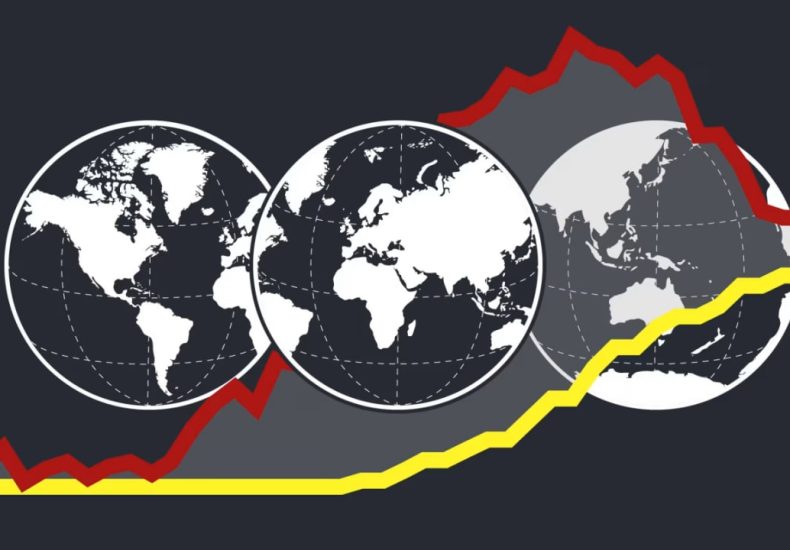
Inflation and Energy Crisis: Tackling Global Economic Challenges
In recent years, the world has been grappling with increasingly complex economic challenges, with two major issues at the forefront: rising inflation and the deepening energy crisis. These two phenomena are interconnected and have far-reaching impacts on everyday life, affecting purchasing power, government policies, and the social-economic stability of countries around the globe. This article explores how inflation and the energy crisis have become global challenges, their impact on Indonesia’s economy, and the measures being taken to address these issues.

1. Inflation: Eroding Global Purchasing Power
Global inflation has reached levels not seen in decades. Major economies like the United States, Europe, and emerging markets have experienced sharp rises in the prices of goods and services. According to data from the World Bank and the International Monetary Fund (IMF), global inflation in 2023 is projected to remain high, with several countries experiencing double-digit inflation.
Causes of Global Inflation:
- COVID-19 Pandemic: The pandemic caused major disruptions to global supply chains. As lockdowns lifted and demand surged, production capacity struggled to keep up, resulting in skyrocketing prices of goods and raw materials. The transport and logistics sector also faced labor shortages, worsening the situation.
- Loose Monetary Policies: To stimulate economic growth during the pandemic, many countries adopted loose monetary policies, including large-scale money printing. This has led to inflationary pressures.
- Energy Crisis: The global energy crisis, particularly the soaring prices of oil and natural gas, has played a significant role in driving inflation. The high cost of energy directly affects the prices of goods and services, as energy is a key component in production and distribution.
The Impact of Inflation in Indonesia:
Indonesia has also seen a rise in inflation. In 2023, Bank Indonesia reported an annual inflation rate of over 5%. The impact has been felt most in essential goods such as food, transportation, and fuel. As inflation increases, the purchasing power of the public diminishes, particularly among low-income households.
To control inflation, the Indonesian government, through the Ministry of Finance and Bank Indonesia, has been adjusting monetary policies, such as raising interest rates, and implementing social assistance programs for vulnerable populations. However, controlling inflation remains a challenge, particularly given Indonesia’s reliance on imports and energy.
2. Energy Crisis: Supply and Demand Tensions
The energy crisis is one of the major challenges currently affecting the global economy. With increased demand for energy post-pandemic and disruptions to supply from major energy-producing countries, the energy crisis has become more severe. Geopolitical tensions have been a major contributing factor to this crisis, causing energy prices to soar.
Causes of the Energy Crisis:
- Russia-Ukraine War: Russia’s invasion of Ukraine in 2022 significantly worsened the global energy crisis. Western countries imposed sanctions on Russia, disrupting oil and gas flows. Russia is one of the world’s largest energy suppliers, and sanctions have disrupted the global supply of these crucial resources.
- Energy Transition: Many countries are making efforts to shift to renewable energy sources to reduce dependence on fossil fuels. However, this transition requires time and significant investment, while the supply of renewable energy remains limited in many regions.
- Extreme Weather: Climate change and extreme weather events, such as heatwaves and storms, have also impacted energy production and distribution, especially in terms of power generation and natural gas supply.
Impact of the Energy Crisis in Indonesia:
Although Indonesia is rich in natural resources, it is still affected by the global energy crisis. Despite being a major producer of coal, Indonesia still imports significant amounts of oil and gas, meaning that global energy prices directly affect domestic energy costs.
Fuel prices in Indonesia have risen, although the government has introduced subsidies to keep prices more affordable for the public. However, these subsidies place pressure on the national budget. The industrial, transportation, and household sectors in Indonesia also feel the strain of higher energy prices, exacerbating inflation and economic instability.
3. The Interplay Between Inflation and the Energy Crisis
The energy crisis and inflation are deeply interconnected. When energy prices rise, the cost of production and transportation also increases, leading to higher prices for goods and services. This creates a vicious cycle that impacts the global economy. Developing countries, including Indonesia, which are heavily reliant on energy imports, are often the most affected.
For example, when global oil prices increase, the cost of transportation and fuel for electricity also rises. This drives up the prices of essential goods, making it more difficult for people to afford everyday items. Meanwhile, inflationary pressures further erode purchasing power, worsening economic hardship.
4. Addressing the Challenges: Government Policies and Renewable Energy Solutions
To tackle these dual challenges, both Indonesia and other countries are focusing on several key policies and strategic solutions:
Inflation Control Policies:
- Monetary Policy Adjustments: Bank Indonesia has raised interest rates to curb inflation and maintain currency stability.
- Energy Subsidies: The Indonesian government has implemented fuel and electricity subsidies to shield the public from rising energy prices.
- Import Management: The Indonesian government is working to reduce its dependency on imports, particularly food and energy, by boosting domestic production and diversifying energy sources.
Renewable Energy Solutions:
- Investment in Green Energy: Indonesia is increasingly pushing for the development of renewable energy sources like solar, wind, and biomass to reduce dependence on fossil fuels. The government is also committed to increasing the share of renewable energy in the national energy mix.
- Energy Efficiency: The government is encouraging businesses and households to adopt more energy-efficient practices through incentives and policies supporting energy conservation.
Conclusion
Inflation and the energy crisis are significant challenges not only for developed nations but also for emerging economies like Indonesia. The broad impacts on purchasing power, economic stability, and energy security require well-crafted policies and long-term solutions, such as energy diversification and sound economic management. Tackling these issues effectively will depend on international cooperation and adaptive domestic policies. The road to recovery from the effects of both crises will be long, but with concerted efforts, the global economy can emerge stronger and more resilient.